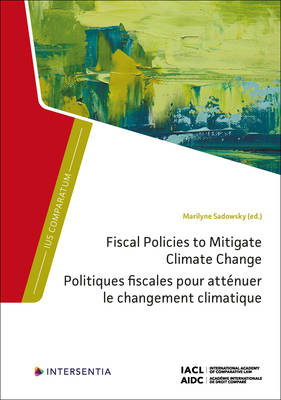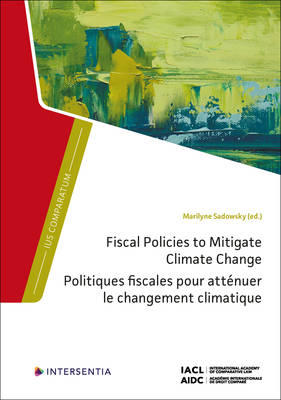
- Retrait gratuit dans votre magasin Club
- 7.000.000 titres dans notre catalogue
- Payer en toute sécurité
- Toujours un magasin près de chez vous
- Retrait gratuit dans votre magasin Club
- 7.000.0000 titres dans notre catalogue
- Payer en toute sécurité
- Toujours un magasin près de chez vous
254,45 €
+ 508 points
Description
Taxation can play a fundamental role in climate change mitigation. While all countries have different approaches, they can act together and must do so urgently by prioritizing environmental objectives. In this respect, this is the first time that a book has brought together the climate fiscal policies of 30 countries, including Bhutan, which is currently the only country to be carbon neutral. Bhutan is implementing fiscal policies to maintain its carbon neutrality, while other countries are trying to implement policies to reduce greenhouse gas emissions. The large number of rapporteurs also reveals the interest in and topicality of the subject for all of the countries in the world, and the emergence of a new subject for some of them. The analysis of this data reveals the difficulty of current fiscal policies to meet the requirements of climate change mitigation set by international and European agreements. There is a great deal of diversity, due to the difficulty of reconciling two distinct objectives - environmental protection and budget preservation - and implementing economic environmental responsibility. Each country is thus setting up a variety of instruments that respond to two different types of logic: compel and/or incentivise. This situation reveals certain weaknesses. These fiscal policies are not coherent and are based on a choice to use revenue for specific purposes, in addition to producing insufficient effects. In order to overcome this situation, it is necessary to reconsider these green tax policies by overcoming a variety of obstacles - political, legal, economic and social - in order to reinvent the existing system through national or global reforms. In this context, some proposals are made to rethink tomorrow's climate fiscal policies. MARILYNE SADOWSKY has a PhD in international and European taxation (Sorbonne Law School, University Paris 1 Panthé on-Sorbonne), and achieved an honourable mention for the Mitchell B. Carroll Prize, International Fiscal Association. She is Associate Professor at the Sorbonne Law School, University Paris 1 Panthé on-Sorbonne, and Codirector of two Masters courses in tax law. She is a member for France of the Academic Committee at EATLP (European Association of Tax Law Professors). For the ILA (International Law Association), she is Coordinator of the White Paper on taxation for the ILA's 150th anniversary in 2023. She was visiting Professor at the Boston College of Law, 2017, and is a Visiting Fellow at the Max Planck Institute, Munich, 2023.
Spécifications
Parties prenantes
- Auteur(s) :
- Editeur:
Contenu
- Nombre de pages :
- 700
- Langue:
- Anglais
- Collection :
Caractéristiques
- EAN:
- 9781839703676
- Date de parution :
- 08-12-23
- Format:
- Livre relié
- Format numérique:
- Genaaid
- Dimensions :
- 170 mm x 244 mm
- Poids :
- 1276 g

Les avis
Nous publions uniquement les avis qui respectent les conditions requises. Consultez nos conditions pour les avis.






